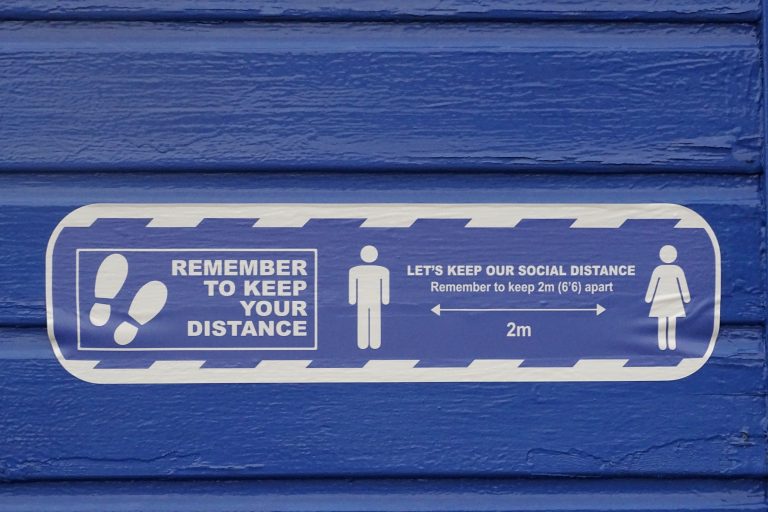Only with both digital and sustainability skills can schools use new technologies as tools to shape a sustainable future and push digitalization itself in the direction of a sustainable society.
These words are from the flyer for a European roundtable on school education at the interface of digital transformation and sustainability, at which I was honoured to give a short input to get the conversation rolling. I agree with the impetus of the Leuphana University event to think digitality and sustainability together, but also I see some major problems lurking in this sentence.
The goal of the roundtable was to bring together two communities which are both incredibly dynamic, but which rarely come together at one table. On the surface, many similarities exist between those working on digital education and those working on education for sustainable development. In this slightly edited version of the input I gave, I list six. But there are also very good reasons that these two communities rarely work together. Looking below the surface, some significant ethical-economic-ecological-political differences exist between these two communities. I’ll discuss three. Since, I didn’t want to end with a conflict, I also suggest a couple of ways to possibly come together fruitfully in the future. These are flagged by the terms ‚difficult knowledge‘ and ‚postdigital‘.
#difficultknowlede #digitaltransformation #dissensus #edtech #ESD #postdigital #sustainability

Similarities
Watching the video which Matthias Barth from the Leuphana University put together with the roundtable participants, I noted six similarities between the discussions on education for sustainable development and those on digital transformation.
- We are dealing with what have been called „megatrends“. Digitality and sustainability are words that signal major societal transformations.
- Worldwide, people perceive an urgent need to act in both fields. The discourse around digital educational technologies (edtech) is full of metaphors like „catching up“, „modernising“ and getting out of the „stone age“. If we look at sustainability, Fridays for Future are not the only ones to show the urgency of acting to save the planet.
- Both fields pay sustained attention to inequality. Key findings here refer to the „digital divide“, „digital use divide“, „participation gap“, and at an existential level, the massive impact a lack of schooling has on life expectancy. At the same time, the climate crisis, rising water levels, burning forests impact people very differently, depending on their income level and where they live in the world.
- Both fields aim to embed their focus across the curriculum. Education for sustainable development (ESD) writers use the concepts of „embedding“ and „mainstreaming“ in relation to sustainability, and the idea pervades the research and debates about digital education: That is, the goal is to integrate sustainability (or digital tech) into all curricular content, across the school subjects. The ESD literature also speaks of „double-purpose learning“ when, for instance, kids learn about statistics in math by using open data about undernourishment in the global population, then the materials fulfil not only the math purpose but also ESD goals.
- This embedding or mainstreaming is closely linked to the notion of activating learners. Many have critiqued the image of the student as „consumer“ who just takes in information, and other observers highlight how technology can help propel students out of a traditional passive/receptive mode of listening to a more active role in their own learning.
- Finally, teacher training. Discussions on ESD and on digital education often talk about the need for teachers to develop their competences.
So, I see six similarities: megatrends, urgency, inequality, embedding, active learners, teacher competences. This would be a good starting point for a two-day roundtable. The participants could stay with these similarities, largely agree with one another, and enjoy the harmony in their group.
I want to suggest, however, that this harmony covers over significant differences. These differences lurk beneath the surface. I shall highlight three.

Differences
Growth and degrowth
The first conflict is between growth and degrowth. Introducing new digital technologies to schools worldwide, expanding the provision of digital tech to more schools, or updating technology across time: These all entail economic growth, growth in resource extraction, growth in digital rubbish. (See Jennifer Gabrys‘ book on Digital Rubbish)
But if we take the idea of sustainability seriously, and if we aim to ensure that all young people around the world have equitable access to quality education; if we aim to achieve climate justice; if we aim to live within the planetary boundaries of this planet that we have, then this kind of growth is simply not possible. If „development“ is understood as growth, expansion or progress, then „sustainable development“ is an oxymoron.
Thus, the concept of „degrowth„ has become more prominent recently, to redefine „sustainable development“ as the kind of development which means that some economies — for instance, in Europe — need to stop growing (i.e., stop increasing consumption, stop increasing profitability, stop increasing GDP). We need to find sustainable ways to stop growing. (Not the sudden way that the corona pandemic has forced on us.)
It is almost impossible to think digital technology without constant growth. It is almost impossible to think sustainability without degrowth.
Solutionism
The second issue is what Evgeny Morozov famously critiqued as technological solutionism. In the technology field, people talk a lot about „solutions“. (Software) engineers love to „solve problems“. Marketing copy for digital technology promises way to find solutions to problems like today’s lack of sustainability. Many people hope that artificial intelligence will enable solutions for a whole range of issues.
Who doesn’t want to solve problems? Individuals, communities and societies face many problems that need to be solved.
But cultural studies research on technology has pointed to the danger of orienting to „solutions“. The danger is that we only identify those things as problems to which we think we can design a solution.
If I am looking for solutions, then when I see many kids having trouble during lockdown and school closures, I look for a solution. One problem for many kids in Europe was that they didn’t have their own computer. So, the solution was to buy computers, lease them or donate them. Lots of media coverage of this. But there were other problems, like nobody to support families to use this new hardware, no community for students to learn together, the lack of daily interactions with teachers or special educational needs support. These were trickier problems, without easy solutions; and they were barely talked about in the media.
The problem of unsustainability is on a different scale. If almost the entire world needs to shift from a growth mindset to a degrowth mindset, then I don’t know anyone who can tell us what the solution is. This is not just a „wicked problem“, it is bigger than that.
So, we have a conflict between wanting to implement solutions, and wanting to draw attention to bigger, more complex challenges.
Student competences
A third conflicting issue is in the competences we expect students to achieve. There are hundreds of models of digital competencies, digital literacies, 21st century skills, etc. Some emphasise using digital tools competently, others emphasise being creative, most mention problem-solving. But what they all share is an almost complete lack of attention to sustainability.
Sometimes, however, sustainability is included in these documents. The Czech Republic’s vision for education includes „the pursuit of active citizenship as a prerequisite for the development of society based on solidarity, sustainable development and democratic governance“. One of the goals of the German Strategy for Education in the Digital World is that students will be able to „take the environmental impact of digital technology into account“ (Umweltauswirkungen digitaler Technologien berücksichtigen). Jisc’s digital capability framework aims for us ‚to act with concern for the human and natural environment when using digital tool‘.
If we understand „sustainable development“ as degrowth, as I suggested earlier, then this is a more complex image of the challenges facing the world today. What do you do once you have taken into account that your school iPad is part of the global (capitalist) destruction of the planet? There are massive ethical, political, and economic issues at stake here. Surely, if we take these capabilities seriously, we (the people gathered around this European roundtable, and most people in our communities and networks) have to radically change our lives.
There is a conflict between digital competences which are fairly easy to integrate into regular life, and competences in sustainability which make me think: „whoa, I [as a white, cisgender, able-bodied woman] have to fundamentally change the way I live my life! This is going to be hard.“
Pathways forward
At this stage, I asked the roundtable participants what they will do with these differences over the next two days that the roundtable was convening. To me, the difficulties look challenging to overcome. They include the social, the technical, the ecological, the ethical, the cultural, and much more. We could get stuck in the challenges.
I want to propose two concepts that focus on exactly these challenges and give us something to move forwards with. (Although I’m uncomfortable using the metaphor of ‚moving forwards‘)
Difficult knowledge
The first is to stay with the difficulty. In Lost Subjects, Contested Objects the educational philosopher Deborah Britzman refers to „difficult knowledge“ as that which requires truly transformative approaches, changing the norms and values that govern most of our lives.
It is difficult knowledge because it is not enough for each of us individually to consume more ethical tech or switch off the lights more often. We are talking about large-scale, systemic, political, community and economic transformations.
It’s difficult knowledge because, as Slavoj Žižek has said, most of us ‚know‘ about the unsustainable effects of our actions, ‚but we do it anyway‘.
It is difficult knowledge because learners may resist it. They may realise that this knowledge will disturb their life, and thus set up defences against these insights and reject them. We — the people around this (digital) roundtable, myself included — are complicit with these learners if we make it too easy for them. It we make it easy, then we help them to resist the difficult knowledge.
Critical research in ESD has worried that much writing about ESD makes it look easy. John Huckle wrote that education for sustainable development
offers key concepts such as interdependence and quality of life, equity and justice, as if these are unproblematic and can readily be translated into the classroom without related considerations of ethics, politics and global political economy. (John Huckle)
In schools, we rarely talk explicitly and openly about the „difficult knowledge“ of how living within our planetary boundaries in a digital age is problematic, because it will mean massive, tough and very challenging conflicts with personal/local/economic interests:
- It is tough for the (relatively) wealthy to buy fewer new tech toys,
- It is challenging to be the first country to aim to keep GDP stable rather than growing GDP,
- It is not going to be fun to convince the shareholders that you want to be the first multinational corporation to be satisfied with annual profit rather than an annual growth in profit.
Easy options are not going to give us a sustainable future. But if educators, edtech developers, policy advocates and others accept that this is difficult knowledge, think of the power in that insight! It may open up the energy that we need if we are to make the truly transformative changes that the world needs right now.
I want to bring in one more concept at the end of this talk: postdigital. If we look at John Huckle’s quote, we can replace a couple of words and it could be about digital education:
Digital strategies offer key concepts such as creativity and problem-solving, equity and inclusion, as if these are unproblematic and can readily be translated into the classroom without related considerations of ethics, politics and global political economy.
And not only ethics, politics, global political economy: Also ecology, culture, sociality, society, justice, and much more. I’ve used this list quite often in this short text. „Postdigital“ offers a shorthand: It refers to all those other aspects of the world that are always already part of any digital thing I hold in my hand. It is, as Thomas Ryberg has said, about dragging the digital into the mud.
[T]he postdigital is about dragging digitalisation and the digital kicking and screaming down from its discursive celestial, ethereal home and into the mud. It is about rubbing its nose in the complexities of everyday practice, such as managing a class of 7-year olds working on tablets (half of them not charged and the other half with links to dubious sites); the realities of gender or racial bias of algorithms or how notions of imagined efficiency gains brought about by „the digital“ impact on work-life balance in organisations (Thomas Ryberg)
The „digital“ and „non-digital“ are thoroughly entangled. There is almost nothing in Europe that is not both digital and non-digital. We know, for instance, that cloud computing needs massive buildings as server farms and large amounts of electricity. The forests are managed with computer programmes.
Postdigital is, for me, a concept to think the whole critical ecology of technology in one word. It reminds me of the social, cultural, economic, political, ethical, ecological aspects of us sitting in our homes, conversing over video conferencing tools. Postdigital reminds me of how problematic it is to isolate one single tool or idea if I want to participate in transforming society. Postdigital reminds me to stick with the difficulty, rather than moving to quickly to solutions. Postdigital reminds me that talking and reflecting and critiquing still isn’t the political change that transforms the world.
What next?
I want to end with this extract from the flyer „Education, Sustainability, and Digitalization — How is learning in schools shaped? A European roundtable on school education at the interface of digital transformation and sustainability“ again:
Only with both digital and sustainability skills can schools use new technologies as tools to shape a sustainable future and push digitalization itself in the direction of a sustainable society.
Yes, we need both digital and sustainability skills. Yes, we need to shape a sustainable future, and we need to push towards a sustainability society.
But we also need postdigital skills to think these two sets of skills together, interwoven. And we need to recognise that it is incredibly difficult to shape a sustainable future. It might be far too difficult a task for schools. Schools task is to introduce students to difficult knowledge. To alert students to the (unjust, inequitable) postdigital configuration we are in today.
I said earlier that you could focus on the similarities among your positions and agree with one another, and live in harmony for the next two days! You could focus on the „easy knowledge“. It would be nice!
But I want to encourage you (as roundtable participants) to sit with the difficult knowledge. What will happen if you don’t smooth over your differences? If you think of the postdigital, the ecosociotechnical, not just the edtech, students or lesson plans. If you don’t try and find easy solutions, or don’t teach students that solutions are easy to implement.
What if we teach them that this is hard! And that it is okay that it is hard. The only way to begin to make substantial transformations is to accept that they are hard to make.
Any changes will not be quick fixes. But this kind of difficult knowledge could lead to transformative postdigital practices. I don’t want this to sound like a „solution“, but I do want it to sound hopeful. As Sarah Hayes writes, the ‚“post“ keeps us hopeful that new possibilities remain‘:
Postdigital difficulty could bring these two communities – digital transformation and education for sustainable development – together to forge novel, utopian yet practicable paths to more liveable, more equitable, more sustainable postdigital futures.
Updated on 2 October 2020 with Jisc’s capabilities framework, after Helen Beetham’s helpful comment!




